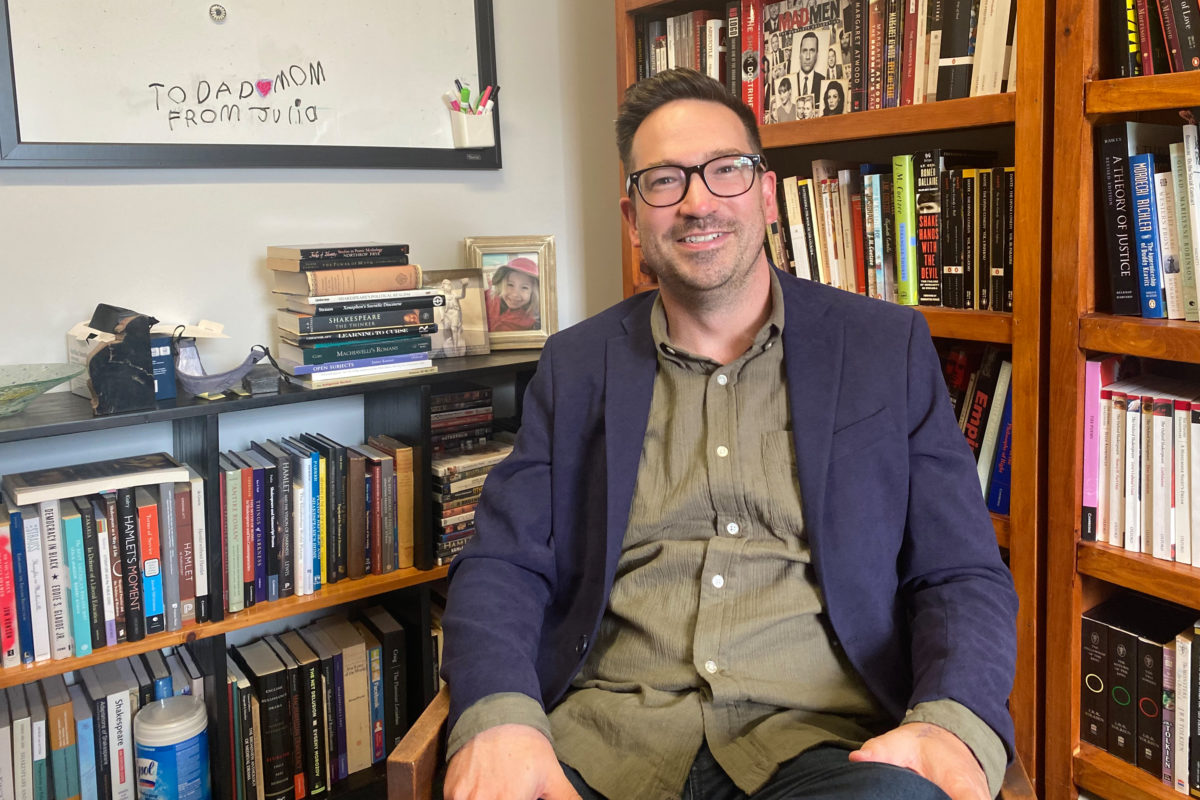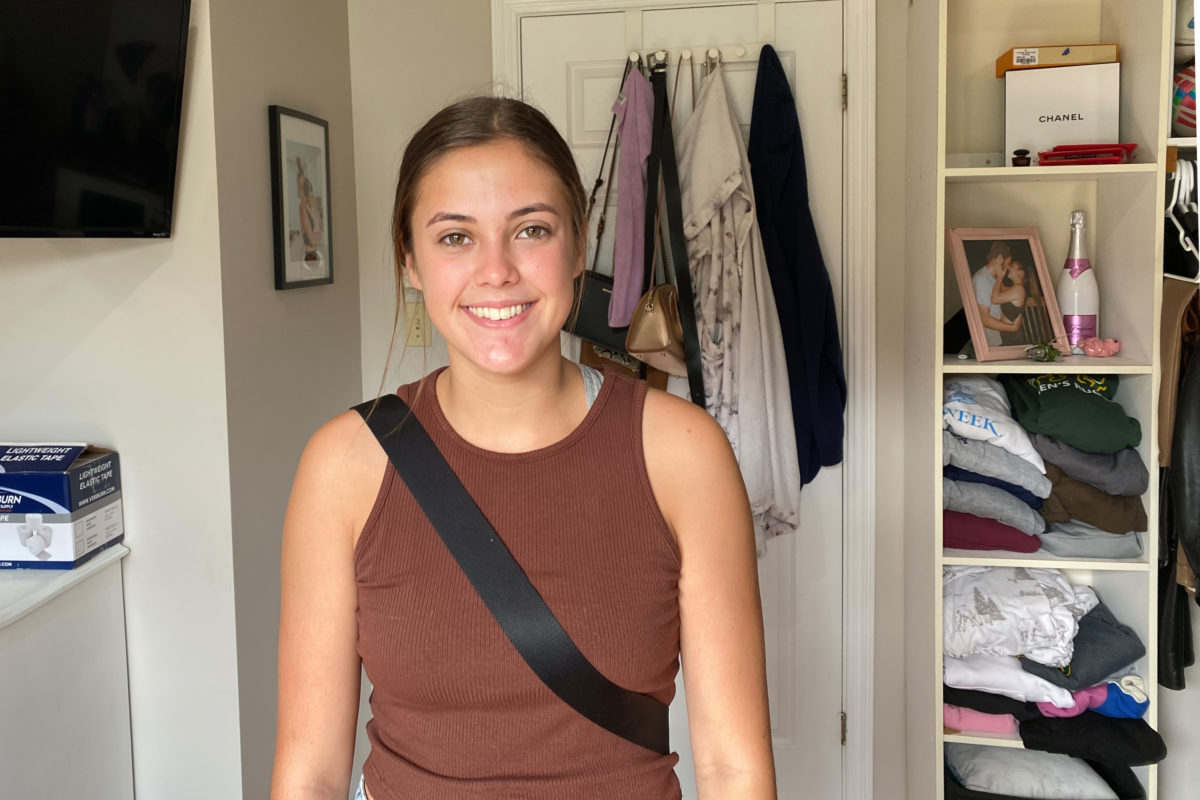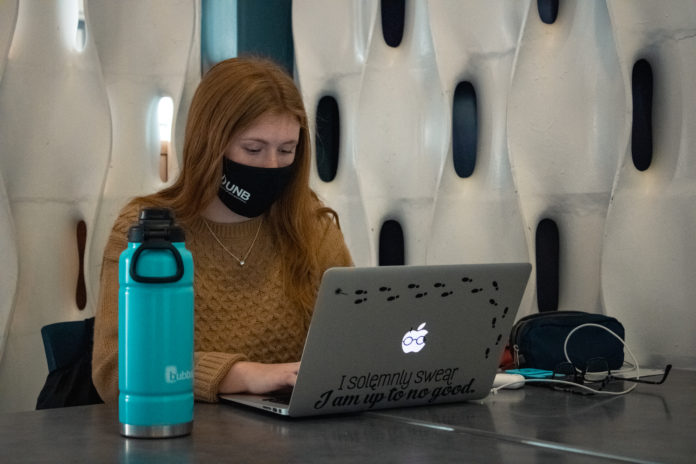Starting March 2020, the students of St. Thomas University opened their laptops to listen to pre-recorded lectures, present in their kitchen and join class through Microsoft Teams.
Now with 65 per cent of STU’s classes back in-person this year, students and teachers are getting a chance to think back on their year and a half of online school.
“I will never forget it,” said Andrew Moore, who has been teaching great books at STU since 2008.
Over the summer of 2020, teachers began to shift their curriculum. They were presented with a number of questions.
How can you replicate a classroom discussion with a discussion post? Will students feel disconnected? Should classes be held asynchronously or synchronously? What about technical difficulties?
“Dr. Cornell and I were on the phone once a week for two hours or three hours trying to think of all the different things that could go wrong,” said Moore.

Moore said one of the simplest ways to shift online was to turn class into a type of independent study, where students work at their own pace.
Intent on preserving the community of the classroom, Moore said great books colleagues Christine Cornell, now passed, and Matt Dinan supported synchronous learning.
In the end, the great books program decided on synchronous classes. This meant that students would all log onto Teams each week to chat about the texts they were reading in real-time. Moore said there were certain constraints, but he’s heard from students it was useful to have Teams as a homebase.
“It preserved some normalcy, to be able to see each other to talk about the books,” said Moore.
While professors were separated from their students, they were also separated from each other. Moore said that before the pandemic, he was used to talking to teachers casually in the hall, asking what teaching techniques they were trying and how they were working.
Teachers being left alone to their own devices, quite literally, made for a desperate time. To provide some help, Moore made a YouTube video showing how he was tackling online teaching.
This was part of a series of YouTube videos Moore makes under the name Great Books Prof. He said that making video lectures is hard work, but in some ways he found them fun.
Still making videos today, he has over 500 subscribers and more than 50 videos.
“Some things like that, that I was forced to think how to do,” said Moore. “I do think it might be useful and might be beneficial down the road.”
Even though students are back in class this fall, many of Moore’s classes are taking the shape of a hybrid model. Some of his students can’t be in Canada or want to participate remotely. He said the appeal of a hybrid model is the flexibility and accessibility.


For Alex Hodson, a third-year student, online school is here to stay. Four of her five courses are online this semester.
Hodson said there is more understanding and fewer technical issues since the professors have more experience with online teaching this year compared to last year.
“It comes with its challenges,” said Hodson. “But at the same time, there’s some perks.”
Cutting the commute was a welcome change. Her online classes are all asynchronous, so that means that Hodson can create her own schedule.
She said for students with packed schedules because of work or sports, it helps to have this flexibility. Hodson is on the rugby team and has in-person practice once a week.
“I miss having the face-to-face connection with the professor,” said Hodson. “As much as they do Zoom meetings if you want, it’s not really the same.”
What she misses most is meeting new people in her classes.
“In [a] perfect world I think I would like to do a mix of both,” said Hodson.

